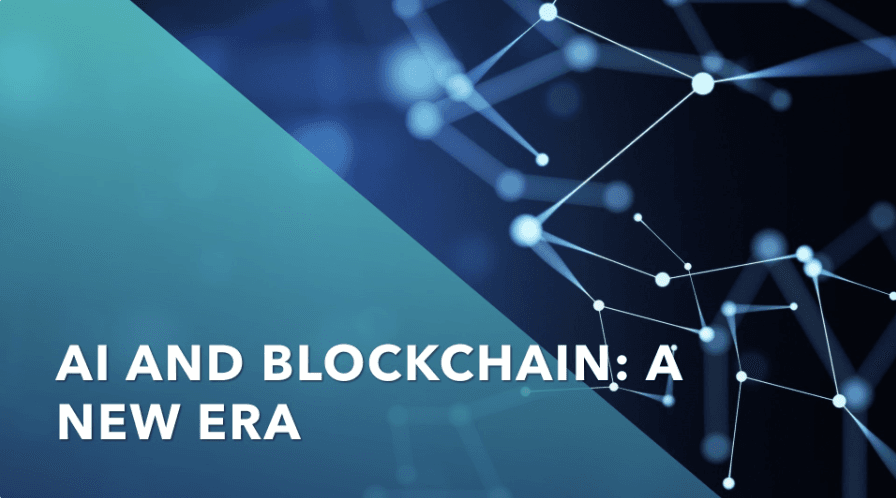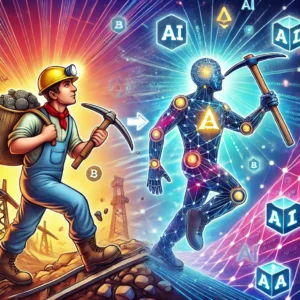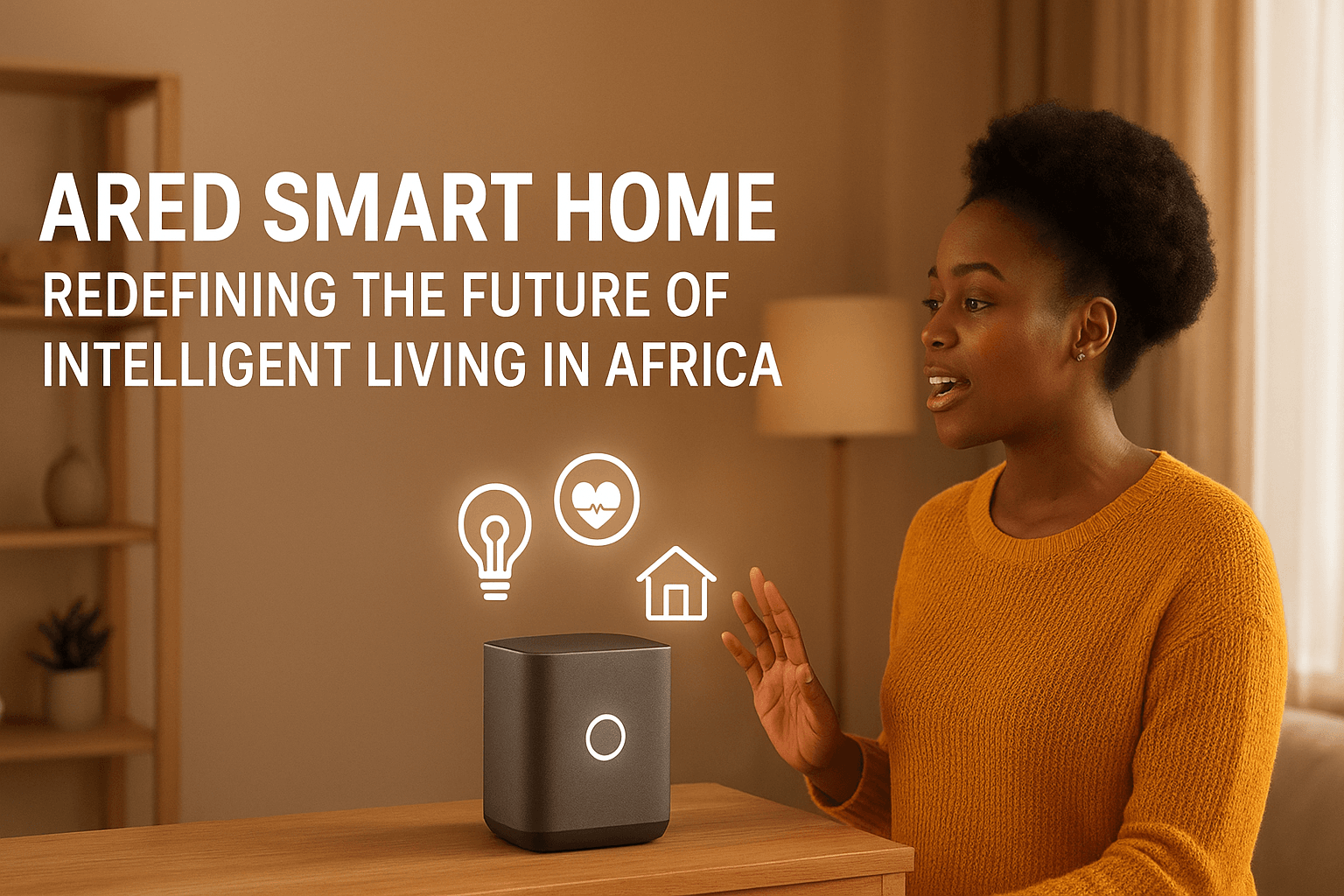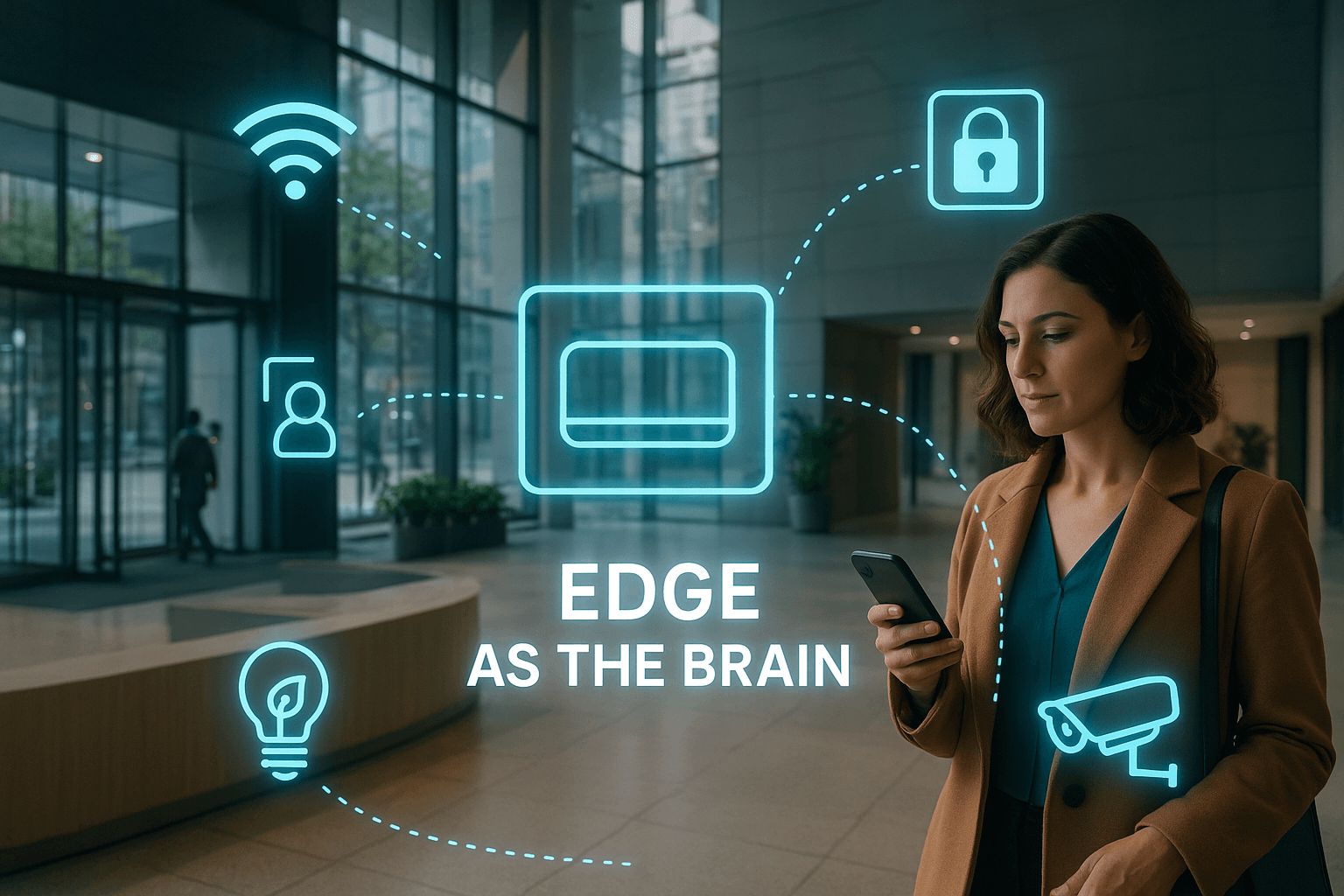
From Miners to Masters: How AI Is Ushering in a New Era of Blockchain Control.
Blockchain has been a game-changer in tech, promising decentralization, transparency, and security. Initially driven by cryptocurrency miners solving complex puzzles, blockchain is now entering a new phase—one shaped by the transformative power of Artificial Intelligence (AI). This evolution raises big questions: Is AI enhancing blockchain’s potential, or is it subtly steering it away from its decentralized roots?
In this blog, we’ll explore how AI is reshaping blockchain infrastructure, the opportunities it brings, the challenges it poses, and why it’s crucial to balance innovation with blockchain’s original ideals.
The Evolution of Blockchain: Where AI Steps In
Let’s start with where blockchain began. In its early days, blockchain relied on miners to validate transactions through energy-intensive processes like Proof of Work (PoW). This was innovative but also slow, expensive, and resource-hungry.
Now, AI is stepping in to solve some of these pain points. By analyzing data faster, optimizing processes, and even learning from historical patterns, AI is making blockchain smarter and more efficient.
AI’s Role in Blockchain Control
Here’s how AI is influencing blockchain’s future:
- Smarter Decision-Making
AI analyzes blockchain data in real-time, identifying patterns that humans might miss. This can prevent bottlenecks, flag suspicious transactions, and optimize network performance. - Upgraded Smart Contracts
Smart contracts were already revolutionary, automating transactions when conditions were met. With AI, they can evolve:- Learn from past transactions to improve execution
- Adjust terms dynamically based on real-world changes
- Become more reliable and efficient
- Better Consensus Mechanisms
Traditional blockchain consensus algorithms like PoW are resource-heavy. AI introduces alternatives:- Proof of Intelligence (PoI): AI nodes validate transactions using machine learning, reducing energy use.
- AI can predict and mitigate network congestion, ensuring smoother operations.
- Predictive Analytics
AI can predict trends in blockchain ecosystems, such as rising transaction fees or potential security vulnerabilities. This proactive approach keeps networks running smoothly.

How AI and Blockchain Work Together in Real-World Applications
The partnership between AI and blockchain isn’t just theoretical; it’s already reshaping industries:
1. Fraud Detection
Blockchain’s transparency makes fraud harder to hide, but AI adds an extra layer of security. It scans vast networks to detect unusual patterns, flagging potential fraud in real-time.
2. Supply Chain Management
AI and blockchain combine to track goods from origin to delivery, ensuring authenticity and efficiency. For example:
- Blockchain logs every transaction.
- AI identifies inefficiencies or predicts delivery delays.
3. Healthcare
AI analyzes anonymized patient data stored securely on blockchain. This improves diagnoses, tracks medication supply chains, and ensures patient records are safe yet accessible.
4. Decentralized Autonomous Organizations (DAOs)
DAOs rely on blockchain for governance, and AI can make them smarter:
- AI models simulate decisions before implementation.
- Voting processes become more transparent and informed.
The Challenges of Combining AI and Blockchain
As promising as this partnership is, it comes with challenges:
- The Risk of Centralization
Blockchain thrives on decentralization, but AI often requires centralized data for training. How do we prevent this from undermining blockchain’s core values? - Privacy Concerns
AI’s power to analyze data can clash with blockchain’s promise of privacy. Striking the right balance is crucial. - High Costs
Training AI models and integrating them into blockchain isn’t cheap. It demands significant computational resources, raising questions about accessibility and sustainability. - Ethical Dilemmas
Who controls AI models on decentralized networks? This lack of clarity could lead to disputes over accountability and ownership.
Opportunities: Why AI and Blockchain Make Sense Together
Despite the challenges, this fusion offers incredible opportunities:
- Efficiency Gains
AI dramatically reduces blockchain’s energy consumption and transaction processing time. It turns blockchain from a slow-moving giant into a sleek, efficient powerhouse. - Innovation for All
Blockchain democratizes data, while AI unlocks its value. Together, they enable innovation across industries—from small businesses to global enterprises. - New Revenue Streams
AI-powered blockchain solutions open doors to new products, such as personalized financial tools or predictive analytics for supply chains.
AI on Blockchain: Friend or Foe to Decentralization?
Now comes the big question: Is AI taking blockchain further or pulling it away from its roots?
On the one hand, AI improves blockchain’s scalability, security, and efficiency. On the other, it introduces risks of centralization and ethical concerns that must be carefully managed.
To ensure AI enhances rather than undermines blockchain, here’s what’s needed:
- Transparency: AI models used in blockchain must be open-source to build trust.
- Decentralized Training: Techniques like federated learning can train AI models without centralized data.
- Ethical Guidelines: Clear rules on AI usage in blockchain networks can prevent misuse.
What Lies Ahead?
The integration of AI and blockchain isn’t just a passing trend—it’s the future. Together, they create systems that are not only decentralized but also intelligent, adaptive, and efficient.
Yet, as we embrace this new era, we must stay true to blockchain’s founding principles of decentralization and transparency. With the right balance, we can move from miners who solve static puzzles to masters of intelligent networks that empower businesses and individuals alike.
Conclusion
The rise of AI in blockchain represents a shift from the old world of miners to a new era of masters. This transformation offers opportunities to make blockchain faster, smarter, and more impactful. However, it’s up to us to ensure that this progress respects the foundational ideals of decentralization and fairness.
As blockchain moves forward with AI at its side, the possibilities are endless—but only if we approach this fusion responsibly. Are you ready to join the journey from miner to master?
FAQ
Q: How does AI improve blockchain scalability?
AI optimizes resource allocation and predicts network congestion, allowing blockchain networks to handle more transactions efficiently.
Q: Can AI and blockchain coexist without sacrificing decentralization?
Yes, by using decentralized AI training methods and maintaining transparency in AI models, the balance between innovation and decentralization can be achieved.
Q: What industries benefit the most from AI-powered blockchain?
Industries like finance, supply chain, healthcare, and governance are already seeing significant benefits from the integration of AI and blockchain.


